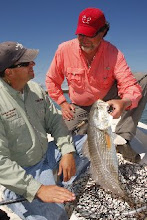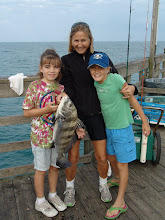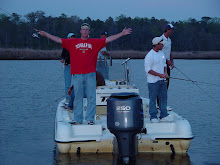COASTAL FISHERIES REFORM GROUP (CFRG) ALERT
Section 2. of Chapter 190 of the 2012 NC Session Laws (SB 821) requires the Director of the Wildlife Resources Commission, the Director of the Division of Marine Fisheries, and the Commissioner of Agriculture to study the organization and function of the fisheries management programs in NC and to report their findings and recommendations for improvement to the NC General Assembly in October of 2012. As a first step in this process, the agencies have set up several public meetings to receive public comment on the subject of reorganization of the fisheries agencies in NC. The times and places with maps are given below:
Public Meetings to receive public comments on reorganization of the fisheries agencies in NC 6 p.m., Aug. 22 and 9 a.m., Aug. 23 N.C. Marine Fisheries Commission Meeting Brownstone Hilton DoubleTree Hotel 1707 Hillsborough St., Raleigh (Map) 5 p.m., Aug. 29 N.C. Wildlife Resources Commission Committee Meetings 1751 Varsity Drive N.C. State University Centennial Campus, Raleigh (Map) 6 p.m., Sept. 5 Craven County Cooperative Extension Office 300 Industrial Drive, New Bern (Map) 6 p.m., Sept 6 Dare County Administration Building Commissioners Meeting Room 954 Marshall C. Collins Drive, Manteo (Map) All comments offered on this issue will be presented for joint consideration by all three agencies.
Attend one of these meetings if you can and send the notice to all your fishing friends so they can attend too. Also, a website has been set up to receive public comments: http://www.ncsenatebill821.org/default.htm
Visit this site and send your comments directly to the three agencies for consideration. CFRG can identify no role for the Department of Agriculture and Consumer Services to play in the management or administration of fisheries resources. Their charge is to manage farm commodities and assist farmers, of which they do a very good job. No efficiency or economy could be gained by involving NCDA&CS in any of the fishery programs, except aquaculture, which they already handle.
In fact, delegating reporting harvest statistics and monitoring fishery catches through NCDA&CS would add an element of uncertainty and additional bureaucracy to the current process, which is working quite well. There are elements of redundancy and overlap of responsibilities between WRC and DMF that, if eliminated, would improve delivery of services, law enforcement, and management of fisheries resources and would save significant overlapping funding requirements through consolidation of those functions.
The present evaluation should focus on items that would improve efficiency and cut redundancy and include recommendations for change to eliminate overlapping activities. Finally, the WRC has a total of 19 members and the Marine Fisheries Commission has 9 members. As close as the missions of these two agencies are, it seems plausible that policy making and regulatory duties of the two Commissions could be consolidated and reduced in a way that would preserve the unique focus on marine and inland fisheries and save a lot of unnecessary administrative costs in the process. If you agree, pass these ideas for savings and efficiency along to the agencies for their consideration in their deliberations. Thank you, NC Coastal Reform Group


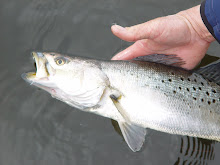



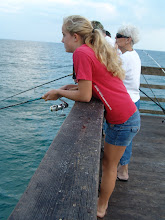

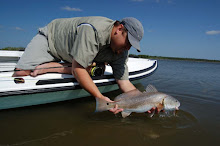.jpg)


